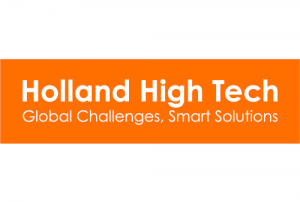
SEGMENT MEETINGS “How will new climate related (EU) regulations and capital markets impact the aviation sector and affect the business of SMEs”
Share news
On February 17th the segment meetings “How will new climate related (EU) regulations and capital markets impact the aviation sector and affect the business of SMEs” took place at Technology Park Ypenburg (TPY) in The Hague.
In the meeting, members were urged not to wait too long to make their business model sustainable.
Jan Verbeek, vice-chairman chairman at NAG/ Partner Knowledge Management and Innovation at ADSE kicked of with a short introduction an and explanation of the purpose of the meeting which was followed by four presentations:
- “What requirements are already being imposed on large companies in terms of environmental impact?” by Michiel Jas, director of sustainability at GKN Aerospace
- “Example of how an SME deals with environmental impact” by Richard Brandwijk, owner Egmond Plastic
- ”How do you make sustainability measurable and why? By Edwin de Zeeuw, CEO Ecochain Technologies
- “Requirements of the financial market” by David Kemps, Sector Banker Industry at ABN AMRO
After the presentations there was a discussion. Some tips and conclusions:
- NAG should develop a communication strategy, to communicate the benefits and particularly quick wins of relative little extra attention and some small investments in sustainability.
- Start with measuring energy consumption to inform operators and facility managers. Could start low key with students (with a side effect for future hiring), or with the help of Ecochain or other consultants or start-ups. For daily use, making the effect of behaviour visible is essential. See example from Egmond Plastics. Note: do the measurements and analysis yourself, involving engineers and operators to engage them and create buy-in.
- Creating an ongoing closed loop approach to address and improve sustainability and circularity, the methods and instruments of aviation safety management and certification could possibly be re-used or augmented. Important decisions like design choices or investment scan be used to create bigger steps.
- For upstream and downstream impact reports (stage 3), stage 1 reports and databases are useful. These reports could also help to engage and influence the design authority for certain products and processes (like in MRO). Same for procurement decisions. But only if those involved are under EU legislation.
The meeting ended with a network drink.
The event was made possible by a TKI HTSM Grant.

Highlights: Mission Indonesia – Dutch Expertise for Sustainable Airports
28 June 2025
Last month, a Dutch delegation successfully completed a high-impact mission to Indonesia, under the Partners for International Business (PIB) Sustainable Airport Development Indonesia, aimed at fostering sustainable aviation solutions and opening up…
Preview: Innovation Mission to Canada in November
28 June 2025
In collaboration with the Netherlands Enterprise Agency (RVO) and the Dutch diplomatic network in Canada, an innovation mission to Canada is being planned for the week of 24 November.